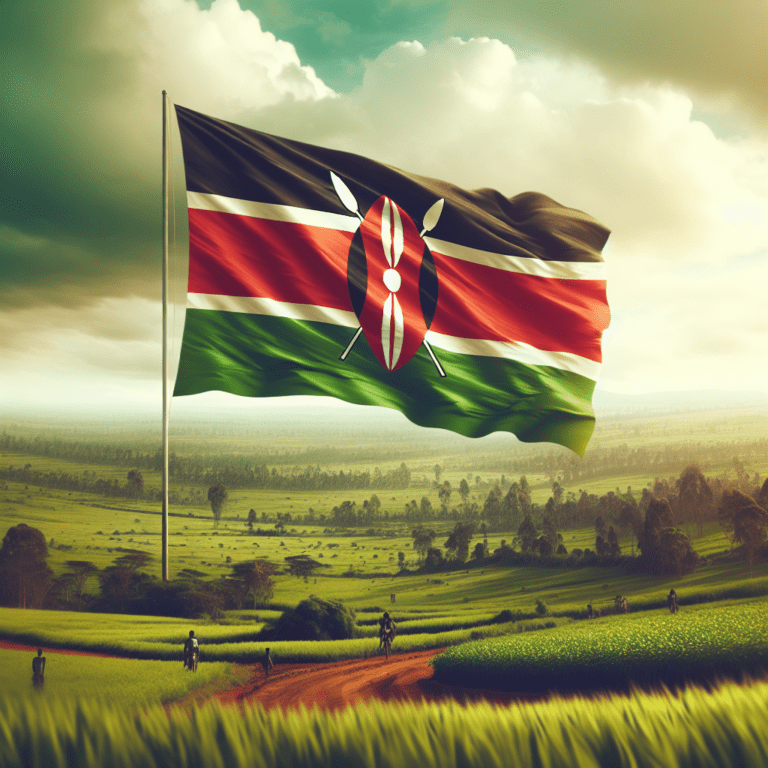Who Was Tom Mboya, And What Was His Significance In Kenyan History?
In the rich tapestry of Kenyan history, one name stands out for its immense significance: Tom Mboya. Born in 1930, Mboya went on to become a prominent figure in the fight for Kenyan independence and played a crucial role in shaping the nation’s future. From his involvement in trade unions to his pioneering efforts in education and politics, Mboya left an indelible mark on the history of Kenya. His tragic assassination in 1969 robbed the nation of a visionary leader, but his legacy continues to inspire and resonate to this day.
Tom Mboya’s Background
Tom Mboya was a prominent figure in Kenyan history, known for his significant contributions to the country’s fight for independence and his achievements as a leader. Born on August 15, 1930, in Kilima Mbogo village, Kenya, Mboya grew up in a politically conscious environment. His father, Leonardus Ndiege Maube Mboya, was a schoolteacher, and his mother, Martha, was a homemaker.
Early Life and Education
As a young boy, Mboya experienced the struggles and inequalities faced by the African community under British colonial rule. Despite these obstacles, he was determined to seek knowledge and empower himself. Mboya attended St. Patrick’s School in Kilimambogo and later joined Mang’u High School. These educational institutions laid the foundation for his future endeavors and ignited his passion for justice and equality.
Political Activism in His Youth
Mboya’s political activism began during his time at Mang’u High School when he founded the African Students’ Association. This organization aimed to raise political awareness among students and advocate for African rights. After completing his education, Mboya went on to become one of the key leaders in Kenya’s struggle for independence.
Tom Mboya’s Contributions to Kenyan Independence
Role in the Mau Mau Rebellion
The Mau Mau Rebellion, which started in the early 1950s, marked a significant turning point in Kenya’s fight against colonial rule. Although Mboya did not directly participate in the armed resistance, he played a crucial role in supporting the rebels and raising international awareness about their cause. Through his activism and eloquent speeches, Mboya brought attention to the injustices faced by Kenyans and helped garner support for their struggle for independence.
Negotiations for Independence
Mboya’s exceptional leadership skills were instrumental during the negotiations for Kenya’s independence from British rule. He played a pivotal role in the Kenya African National Union (KANU) and worked closely with other prominent leaders, including Jomo Kenyatta, to secure self-governance for the country.
Establishment of Political Parties
After Kenya gained independence in 1963, Mboya focused on building a strong political foundation for the newly formed nation. He played a key role in establishing the Kenya African National Union (KANU) and became one of its influential leaders. Mboya advocated for unity, inclusivity, and the empowerment of all Kenyans through political participation.
Tom Mboya’s Leadership and Achievements
Minister of Justice and Constitutional Affairs
Mboya’s leadership talents were recognized by Kenyatta, who appointed him as the Minister of Justice and Constitutional Affairs. In this role, Mboya spearheaded the development of Kenya’s legal framework, ensuring fairness, equality, and justice for all citizens. His commitment to upholding the rule of law and protecting individual rights greatly influenced Kenya’s governance systems.
Economic Development Initiatives
Recognizing the importance of economic development in nation-building, Mboya played a significant role in implementing various initiatives aimed at fostering economic growth. He focused on attracting foreign investments, establishing industrial centers, and promoting trade to create employment opportunities and improve the standard of living for Kenyans.
Education Reforms
Mboya was a staunch advocate for education and firmly believed that it was vital for Kenya’s progress. He introduced reforms to expand access to quality education, especially for the marginalized communities. Mboya played a pivotal role in establishing the African American Students Foundation, which provided scholarships for Kenyan students to study abroad, exposing them to new ideas and perspectives.
Labor Movement Support
A firm believer in workers’ rights, Mboya actively supported the labor movement in Kenya. He fought for better working conditions, fair wages, and the protection of workers’ rights. Mboya successfully led negotiations with labor unions, employers, and the government, resulting in significant improvements in workers’ welfare across various sectors.
Assassination of Tom Mboya
Tragic Event and Public Outcry
On July 5, 1969, tragedy struck when Tom Mboya was assassinated in Nairobi. His untimely death led to outrage and grief among Kenyans who had regarded him as a visionary leader and catalyst for change. The news of his assassination sparked mass demonstrations, strikes, and a profound loss for the nation.
Investigation and Trial
Following Mboya’s assassination, an investigation was launched to identify the perpetrators and bring them to justice. While the case faced various challenges, it eventually resulted in the arrest and trial of his assassin. The trial attracted widespread attention and became a symbol of the struggle against political violence and intolerance.
Legacy and Impact
Influence on Kenyan Politics
Tom Mboya’s legacy continues to shape Kenyan politics and inspire future generations of leaders. He left a profound impact on the nation’s political landscape, emphasizing the importance of leadership, inclusive governance, and socio-economic development.
Continued Labor Advocacy
Mboya’s championing of workers’ rights and his commitment to improving labor conditions have had a lasting impact. His influence can still be seen in the labor movement’s efforts to protect workers’ rights and advocate for fair wages in Kenya.
Memorials and Commemorations
To honor his contributions, several memorials and commemorations have been dedicated to Tom Mboya. The Tom Mboya Mausoleum in Rusinga Island stands as a tribute to his life and achievements. Additionally, the annual Tom Mboya Memorial Lecture brings together influential speakers and thought leaders to discuss issues related to governance, justice, and economic development.
Tom Mboya’s Ideologies and Vision
Pan-Africanism
Tom Mboya strongly believed in the power of Pan-Africanism and African unity. He advocated for collaboration and cooperation among African nations to achieve self-determination, economic progress, and social justice. Mboya actively engaged with other African leaders, fostering a sense of solidarity and shared purpose.
Social Justice
Throughout his life, Mboya fought passionately for social justice, aiming to eliminate the inequalities and injustices that plagued Kenyan society. He worked tirelessly to uplift marginalized communities, striving for equal opportunities, access to quality education, and a fair distribution of resources.
Youth Empowerment
Mboya recognized the importance of youth in driving change and shaping the future. He dedicated himself to empowering the youth through educational opportunities, leadership development, and mentorship programs. Mboya firmly believed that investing in the youth was crucial for sustainable development and progress.
The Life and Career of Tom Mboya
Rise in Trade Unionism
Before becoming a prominent political figure, Tom Mboya rose to prominence through his involvement in trade unions. He played a crucial role in organizing workers and strengthening their bargaining power to advocate for better working conditions and fair treatment, marking the start of his lifelong commitment to social justice.
International Recognition
Mboya’s influence extended beyond Kenya’s borders, and he gained international recognition for his contributions. His captivating speeches and advocacy for African independence earned him respect and admiration from leaders worldwide. Mboya’s international recognition further underscored his significance in Kenyan history.
Relationship with Jomo Kenyatta
Mboya’s relationship with Jomo Kenyatta, Kenya’s first president, was complex but mutually respectful. While they were political allies during the struggle for independence, tensions arose in later years as Mboya’s influence grew. Despite their differences, Kenyatta recognized Mboya’s invaluable contributions to Kenya’s development and appointed him to key ministerial positions.
Tom Mboya’s Role in Nation-Building
Promoting National Unity
Tom Mboya strongly believed that national unity was critical for Kenya’s progress and development. He tirelessly worked towards creating a united nation by bridging ethnic divides, promoting inclusivity, and ensuring that all Kenyans had equal rights and opportunities.
Implementation of Development Projects
Mboya actively championed numerous development projects aimed at uplifting Kenyan communities. He played a key role in advancing infrastructure development, industrialization, and agricultural reforms to spur economic growth and improve the lives of citizens across the country.
Tom Mboya’s Advocacy for Equal Rights
Fight Against Tribalism
Tribalism and ethnic divisions were significant challenges facing Kenya during its early years of independence. Tom Mboya fervently fought against tribalism, urging Kenyans to unite as one nation. He emphasized the importance of national identity and promoted inclusivity, striving to create a society where every individual was treated with dignity and respect, regardless of their tribe.
Women’s Rights
Mboya recognized the importance of women’s empowerment and fought for their rights and representation in various spheres of society. He advocated for increased access to education, economic opportunities, and political participation for women. Mboya firmly believed that empowering women was not only a matter of justice and equality but also key to Kenya’s progress as a nation.
Tom Mboya’s Influence on African Politics
Collaboration with African Leaders
Tom Mboya actively collaborated with other African leaders to advance the Pan-African agenda. He played a pivotal role in organizing the All-Africa Peoples’ Conference in 1958, which brought together leaders from across the continent. Mboya’s contribution to fostering unity and cooperation among African nations laid the foundation for future regional collaborations.
Pan-African Economic Integration
Mboya recognized the potential for economic integration among African countries to drive sustainable development and reduce dependency on external forces. He advocated for regional economic cooperation, promoting the establishment of institutions such as the East African Community and the Common Market for Eastern and Southern Africa (COMESA). Mboya’s vision of a united and economically strong Africa continues to inspire leaders in the continent today.
In conclusion, Tom Mboya’s life and career were defined by his unwavering commitment to justice, equality, and the betterment of Kenyan society. His significant contributions to the country’s struggle for independence, leadership, and advocacy for social justice have left an indelible mark on Kenyan history. Mboya’s ideologies, vision, and legacy continue to inspire generations, reminding us of the transformative power of leadership, unity, and perseverance.







